As the media reports on links between the deadly cholera outbreaks in Haiti and a strain of the disease that was most likely introduced by UN peacekeepers, I am reminded of my visit to Tunisia and Libya last month. I photographed the UN refugee camp in Tunisia, about four kilometers inside the border, and interviewed several English-speaking refugees.
Although I am not an expert on the transmission of infectious diseases, I received basic instruction on this topic when I became a Navy Corpsman. The situation I saw at the UN camp is, I believe, beyond unsanitary. It does not take an expert, or even basic training on the subject, to see this.
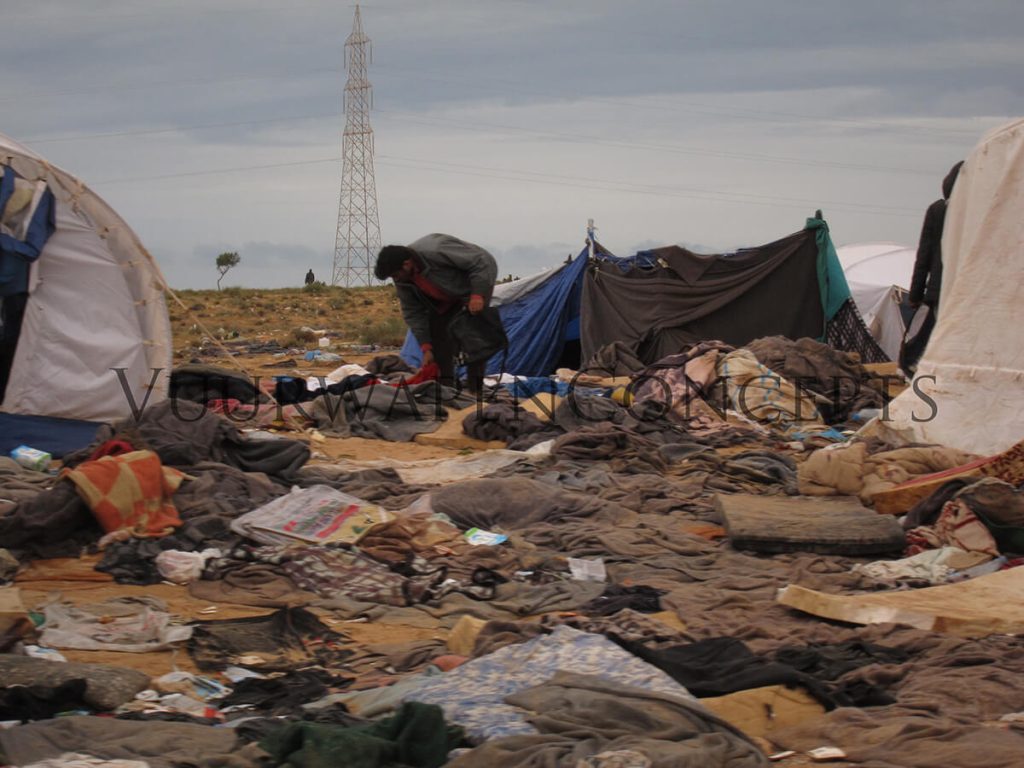
Refugees were taking shelter wherever they could, while the amount of trash and standing water nearby was unacceptable.
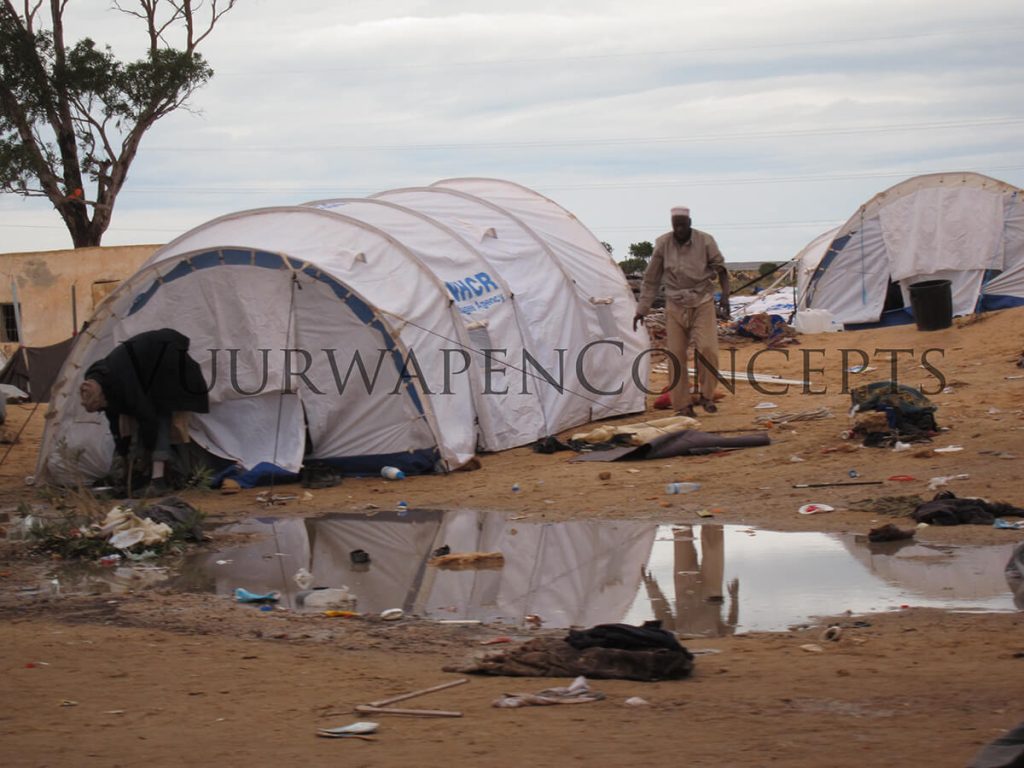
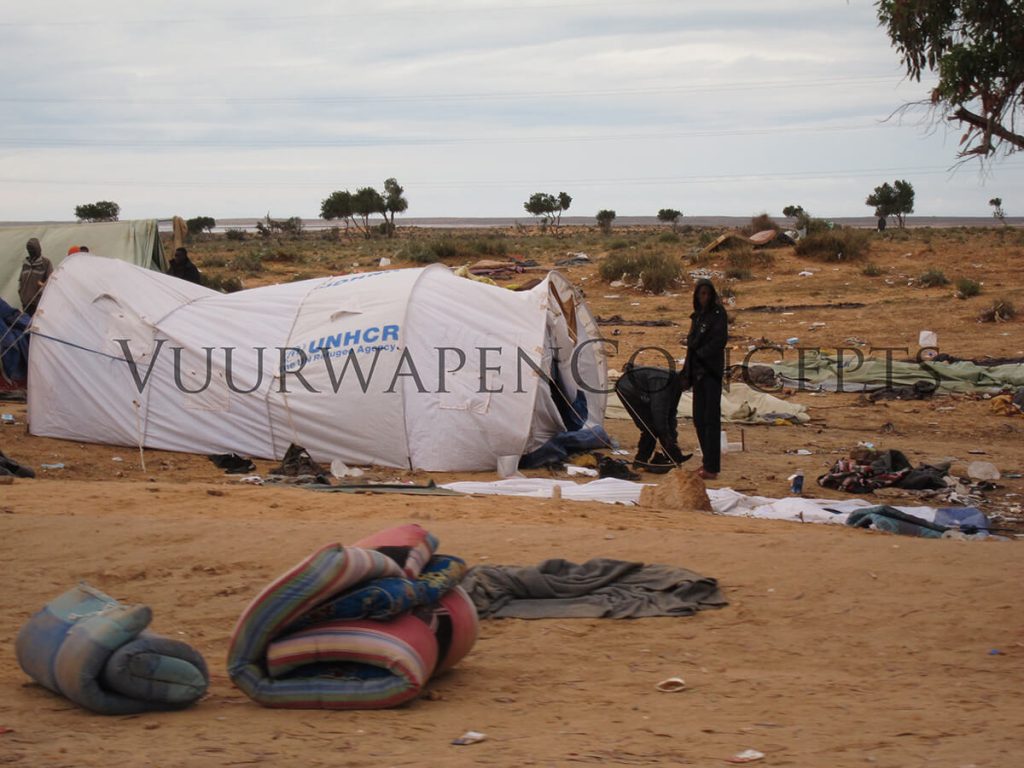
In comparison, the refugee camp run by the United Arab Emirates was relatively neat and free of trash and standing water.
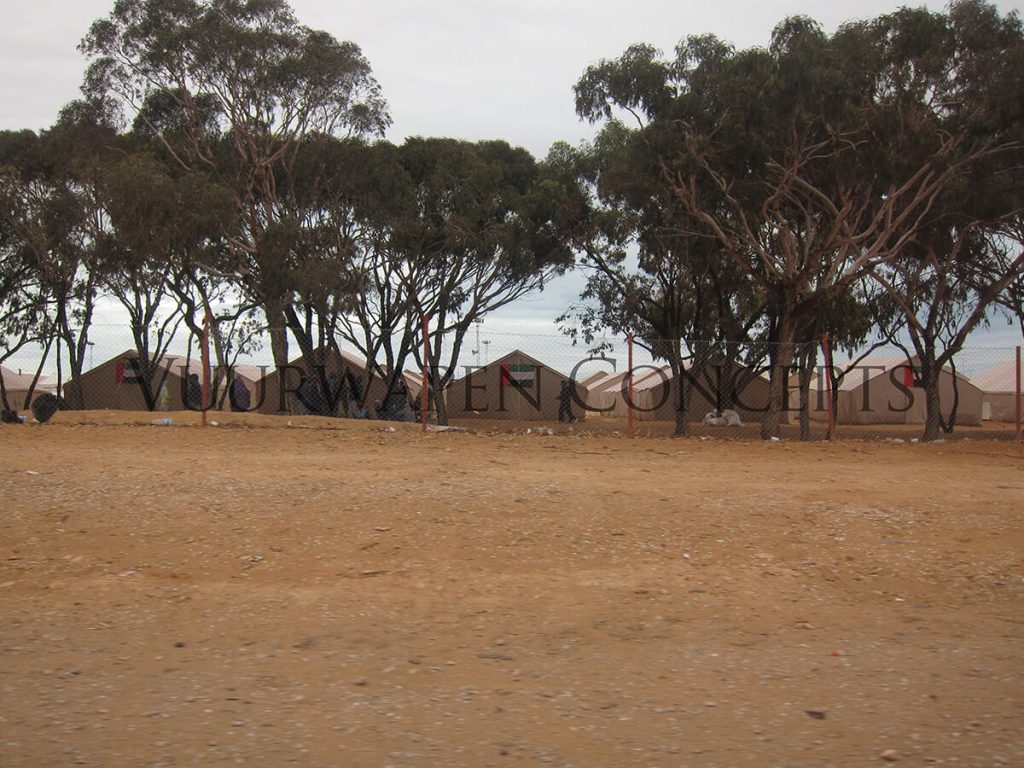
When approaching the border crossing, refugees first see Tunisian police and soldiers, who are actually standing inside Libya. Further inside Tunisia, military checkpoints ensured that no refugees escaped from the refugee camp in order to travel farther into Tunisia. My American passport was obviously a rarely-seen item at these checkpoints, for it attracted a crowd whenever I had to produce it.
UN workers at the crossing do not interact with the refugees with any great frequency, preferring to talk amongst themselves. Perhaps the most enthusiastic greeters for refugees are the Tunisian moneychangers, who are more than happy to exchange currencies – the most common of which were the Libyan dinar and the American dollar – for Tunisian dinars. Tens of thousands of American dollars were these men’s hands, crisp bills that had probably never even been folded once, all brought by refugees. The “exchange rate” was steep.
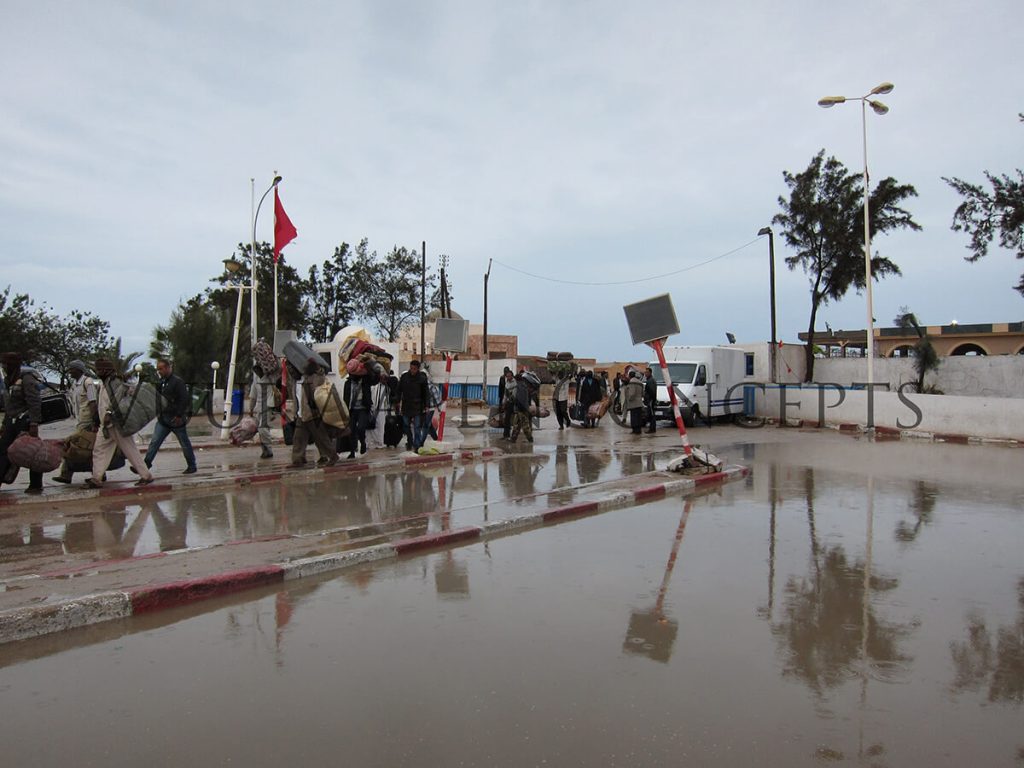
Refugees are often carrying everything they own with them – that is, everything that wasn’t taken by the bandits that have de facto control over the roads in the westernmost portion of Libya. The refugees might encounter half a dozen “checkpoints” along their escape route.
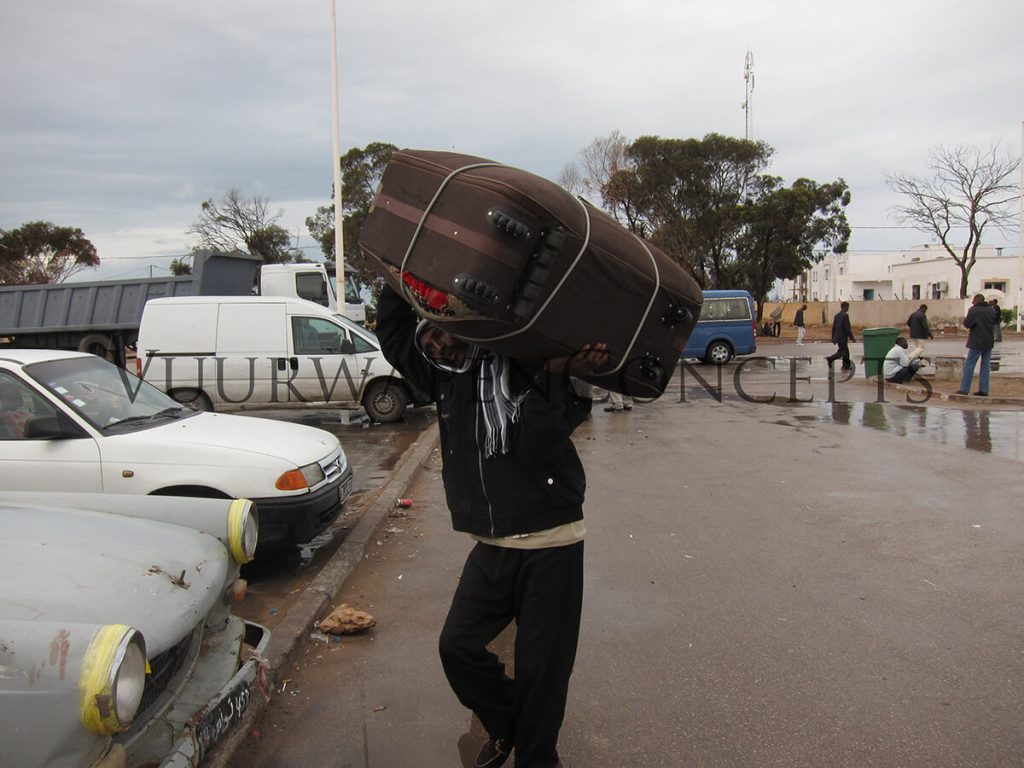
One of the more interesting experiences I had on the trip was speaking with Daouda, a 33-year-old electrician who was born in Niger but had spent the last eight years working in Libya. Most recently, he had been working for Bechtel in Sirte, Libya, which is Muammar al-Ghaddafi’s hometown. He had fled Sirte with his family after the initial American air attacks on Libyan forces in the area.
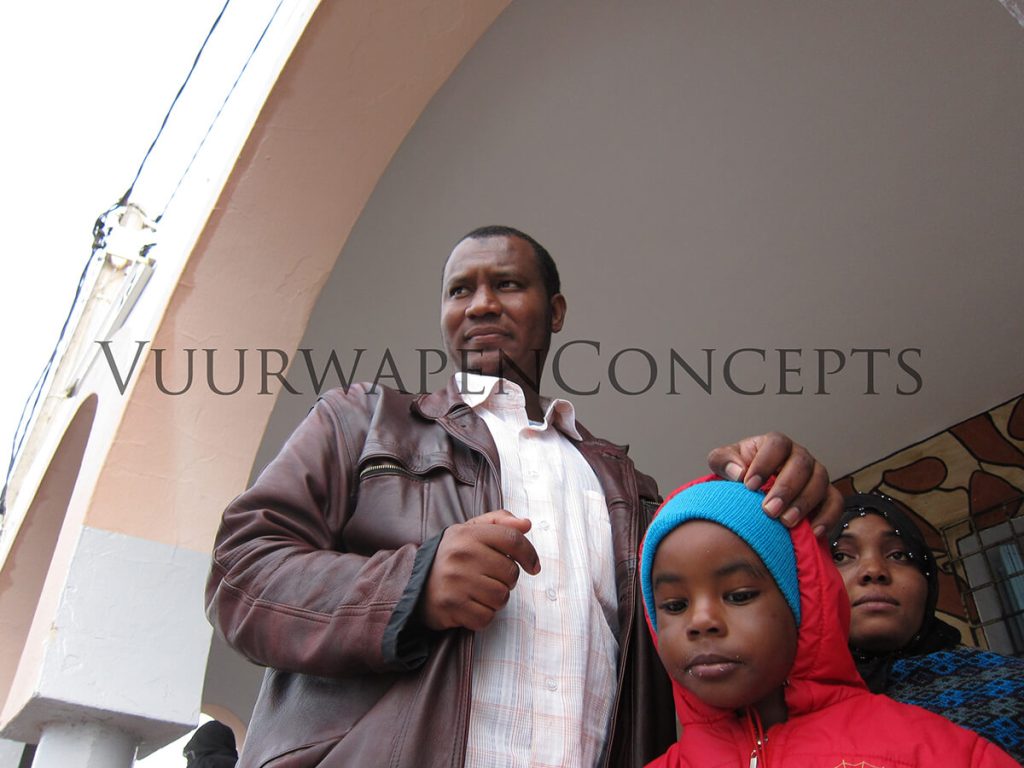
Daouda said that he had lived a very good life in Libya, with a house and car provided by Bechtel. His salary was the equivalent of about one thousand dollars per month, and he was able to provide not only necessities for his family, but luxuries such as a PlayStation3 for his son. Initially, he and others in Sirte planned to wait out the civil war, but to quote him, “You do not want to see what happened to Sirte.”
Many of those in the town wanted to leave as well, but had not worked regular jobs and/or saved money during more peaceful times. As a result, they were unable to pay the exorbitant fees required for transportation to the Tunisian border from locations inside Libya. As Daouda found out, just saving money wasn’t enough, for bandits stole most of his money at the first “checkpoint” – along with the PlayStation3 and other electronics. He then gave the remaining cash and a cell phone to his wife, who “hid them,” as Daouda said delicately.
At subsequent checkpoints, the family was harassed, but they made it through without the loss of too many more possessions.
When they reached the border, though, Daouda found that UN aid workers were totally disorganized. Despite what I saw as a great deal of tenacity and resourcefulness on his part, he was unable to find medical care for his son, who was running a fever. He also discovered that UN aid workers were charging refugees to bring their belongings to the camp, which was several kilometers away, as I mentioned.
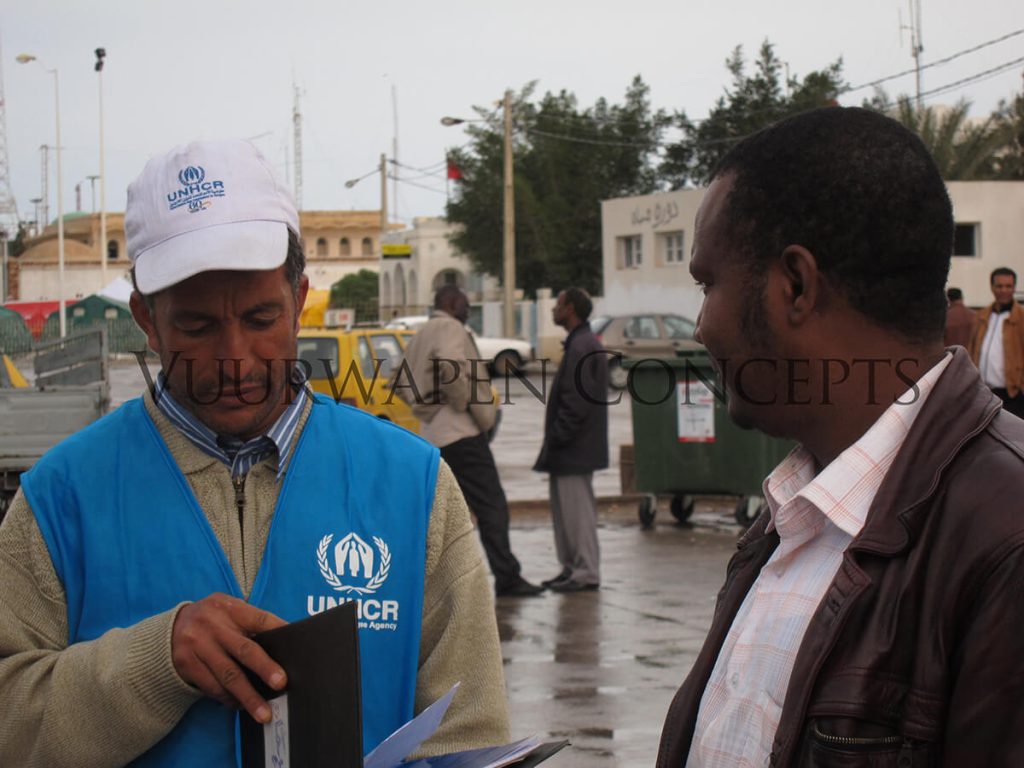
Daouda was more than happy to tell me what he thought of the United Nations, and the relief effort. These are direct quotes from him.
“The UN is bull****,” he said. “Serious people should be in charge of the relief, not Arabs. The US and the EU, they care about human rights. These people do not.”
I appreciate the fact that running a huge relief effort is a very complicated process, but I must agree with Daouda that the UN was doing a particularly poor job at it in Tunisia. The prevailing attitude seemed to be that “someone else” would fix all of the problems that were growing worse by the day.
Daouda and his family faced many challenges, such as where they were to go after the refugee camp – unemployment in Niger was already high before the massive influx of refugees from Libya – but given his level of determination, I have no doubt that he will become successful again wherever he goes. I suggested that he try to find work in Tunisia if at all possible, for construction in Tunis was progressing at a fast pace, and electricians would no doubt be in demand.

Serious people should be in charge of the relief, not Arabs. The US and the EU, they care about human rights. These people do not.
Then why did the UAE camp look so organized and clean? Or was it empty?
I would imagine many camps are deplorable, but thanks for an insight into actual UN “Help!”
I don’t believe that he had yet seen the UAE camp. It definitely wasn’t empty.
I will say that there seems to be a definite change in mentality from countries like Kuwait and the UAE to Libya and Tunisia.
Nice write up. It just reaffirms my thoughts on the UN and their ability to be of good use.
Thanks
Great report, thanks.
Our son Chris..age 32 yrs has been missing since Dec 26th..he was headed for Egypt from South Africa at that time…he is 5 ” 10 “, 170 lbs. Dark wavy hair, large green eyes and wears a short or longer beard..maybe under another name other than Chris Smith for safety…he had been traveling the world and may have run into difficulty with the war..if you see him…please email me..his dad Steve and I his mom are frantic to find him.
Thank you,
Debi Smith
Bend, Oregon